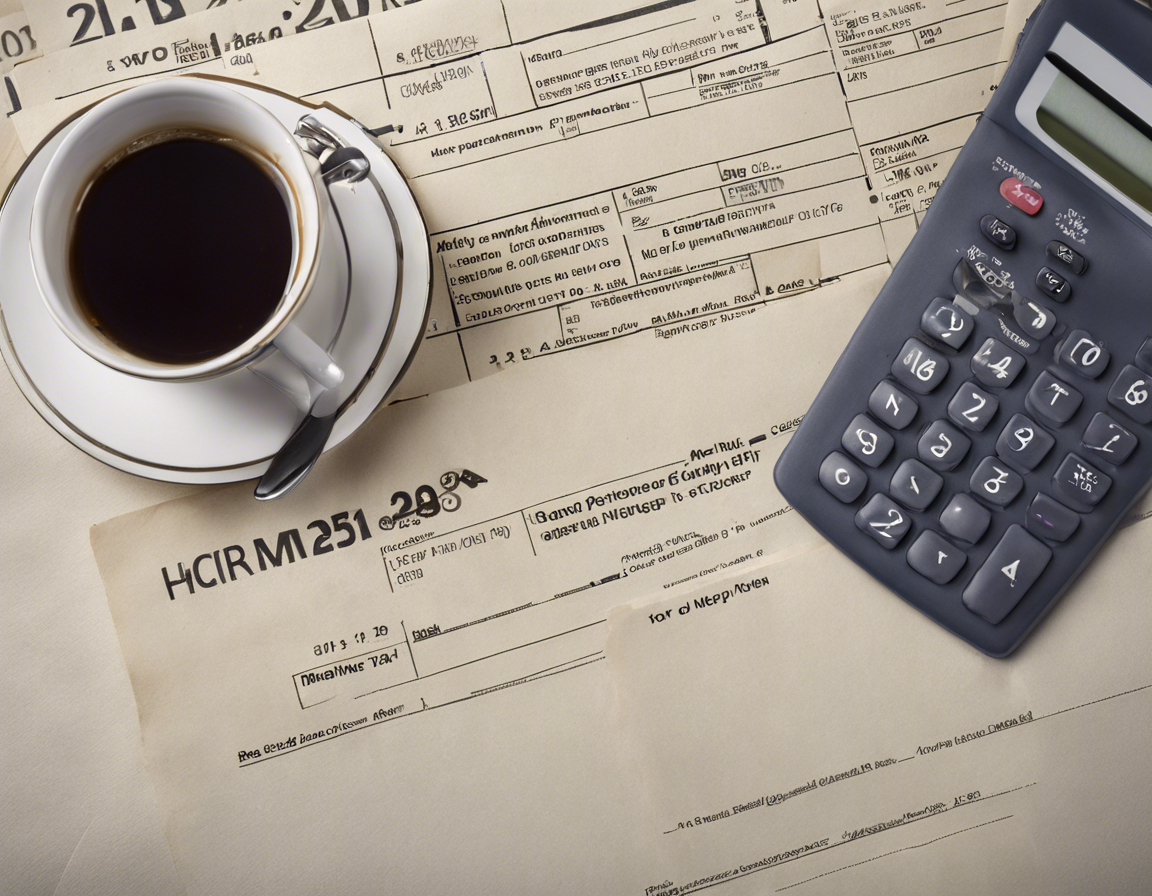The recent news about HM Revenue and Customs (HMRC) sending warning letters to pensioners about potential new tax bills has caused concern and confusion among retirees. This development has left many individuals wondering what the implications are for their finances and how they can address any issues that may arise. In this article, we will delve into the details of this situation, explore why pensioners are receiving these warning letters, and provide guidance on how to navigate through this potentially perplexing scenario.
Why are Pensioners Receiving Warning Letters from HMRC?
The primary reason pensioners are receiving warning letters from HMRC is due to underpaid tax. This scenario typically occurs when individuals have multiple sources of income, such as a state pension, private pension, and part-time employment, which can lead to complexities in tax calculations. HMRC uses various systems to detect discrepancies in individuals’ tax payments, including the PAYE system and the annual tax return process. If HMRC identifies that a retiree has underpaid tax, they will send out a warning letter to inform them of the discrepancy and the actions needed to rectify the situation.
Understanding the Potential Impact of the New Tax Bills
Receiving a warning letter from HMRC about a new tax bill can be concerning, but it’s essential to understand the potential impact of this situation. If you receive such a letter, it means HMRC has identified discrepancies in your tax payments and believes you owe additional tax. Failing to address this issue promptly can result in penalties and interest accruing on the outstanding amount. Therefore, it’s crucial to take action upon receiving the warning letter to avoid further financial implications.
What Steps Should Pensioners Take Upon Receiving a Warning Letter?
-
Review the Letter Carefully: Take the time to read through the warning letter from HMRC thoroughly to understand the details of the underpaid tax and the actions required.
-
Check Your Tax Records: Review your tax records, including income sources, tax codes, and any deductions or allowances, to identify the source of the discrepancy.
-
Contact HMRC: If you believe there has been a mistake or if you require clarification regarding the underpaid tax, contact HMRC directly to discuss your situation.
-
Arrange Repayment: If you agree with HMRC’s assessment of the underpaid tax, arrange a repayment plan to settle the outstanding amount to avoid additional penalties.
-
Seek Professional Advice: If you are unsure how to proceed or if you require assistance in dealing with HMRC, consider seeking advice from a tax professional or financial advisor.
Addressing Common Concerns Regarding New Tax Bills for Pensioners
Will I Face Penalties for Underpaid Tax?
Failure to address underpaid tax promptly can result in penalties and interest accumulating on the outstanding amount. It’s essential to take action upon receiving a warning letter to avoid further financial consequences.
Can I Dispute HMRC’s Assessment of Underpaid Tax?
If you believe there has been a mistake in HMRC’s assessment of the underpaid tax, you can dispute their findings by providing relevant evidence and documentation to support your case.
How Can I Avoid Underpaying Tax in the Future?
To prevent underpaid tax in the future, ensure that your tax records are accurate, keep track of your various sources of income, and promptly report any changes to HMRC that may impact your tax liabilities.
What Happens If I Cannot Afford to Pay the Underpaid Tax Immediately?
If you cannot afford to pay the underpaid tax immediately, you can arrange a repayment plan with HMRC to spread the payments over a more manageable period.
Should I Seek Professional Help to Deal with HMRC’s Warning Letter?
If you are unsure how to proceed or if you require assistance in addressing HMRC’s warning letter, it may be beneficial to seek advice from a tax professional or financial advisor who can guide you through the process.
In conclusion, receiving a warning letter from HMRC about underpaid tax can be a daunting experience for pensioners. However, by understanding the implications of the new tax bills, taking proactive steps to address any discrepancies, and seeking assistance when needed, retirees can navigate through this situation effectively and ensure compliance with their tax obligations. Remember to stay informed, review your tax records regularly, and engage with HMRC promptly to resolve any issues that may arise.
